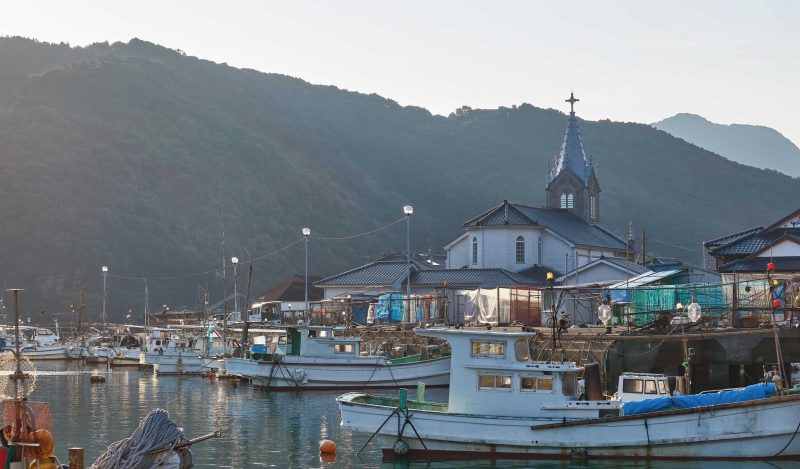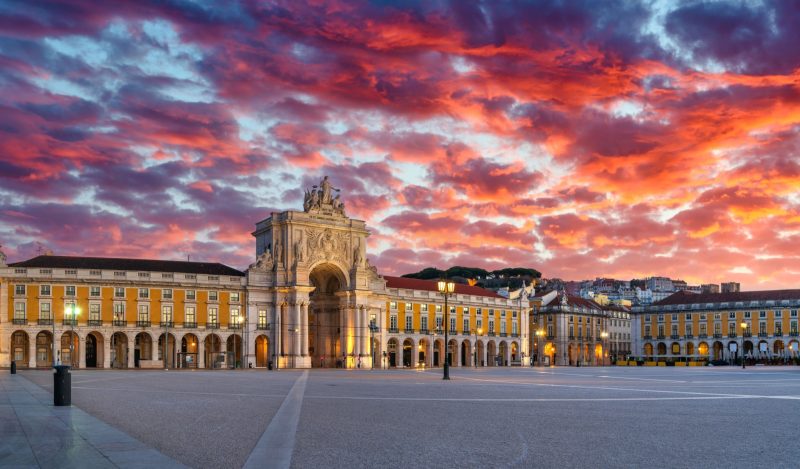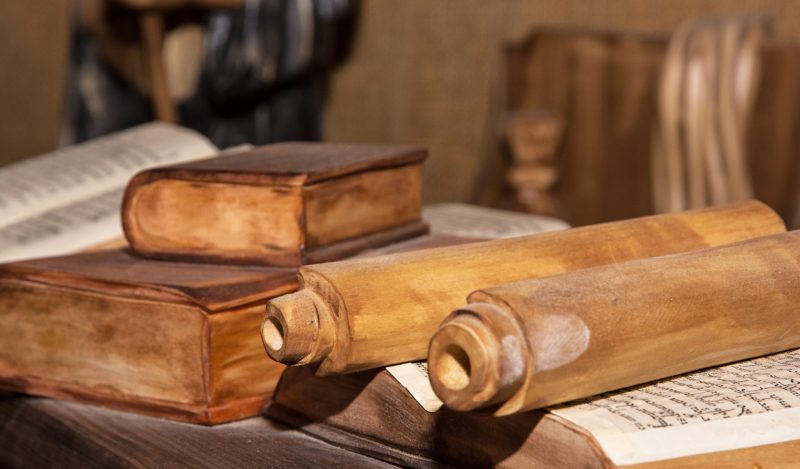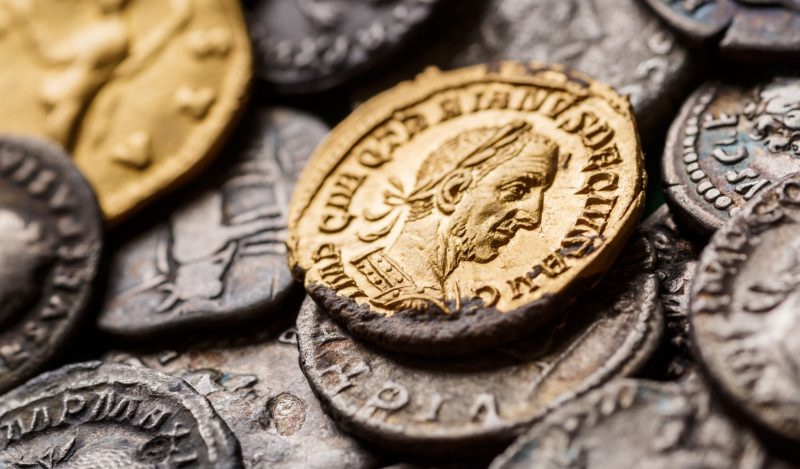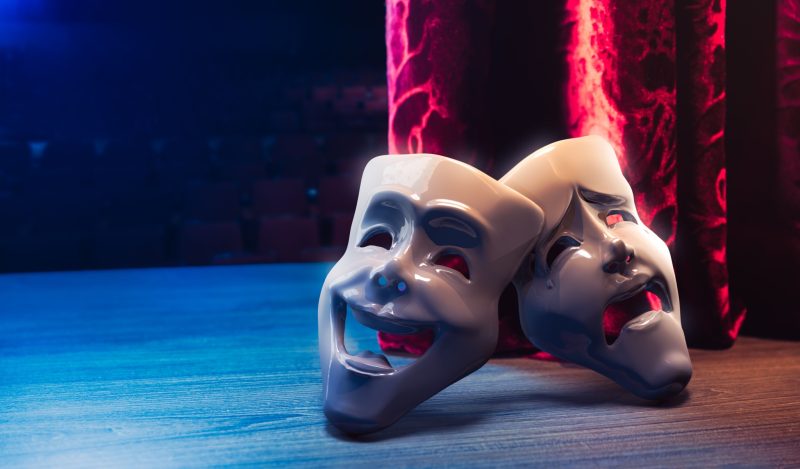Churches and other religious communities resisting the party line on the Covid response have received attention and praise on this website. I share the admiration, but as a pastor myself I have only accidentally ended up on the side of the resistance. Many if not most of my fellow pastors in the more mainstream-to-liberal churches have become tacit enforcers for the powers-that-be. Here I’d like to give an account of why I didn’t, and what I take to be the reasons that others did.
I’ll start with my personal response to Covid and all the policy and enforcement that surrounded it. Like anyone, I was frightened by the news of a virulent epidemic. I was more than willing to hunker down at home, wear a mask, disinfect hands and groceries, and help my kid manage school remotely. It seemed the only reasonable and neighborly thing to do.
What started to tilt my perspective was the first time I heard someone mention a vaccine with great hope and enthusiasm, and an attendant willingness to continue this homebound life until it came along. I am not and have never been a general vaccine skeptic. If anything, I’ve had more vaccinations than the average American because of where I’ve traveled.
But three things troubled me right from the get-go about the promise of a Covid vaccine.
First was the overwhelming terror instilled in people, leading to a willingess to sacrifice all other aspects of life until a vaccine became available—and who knew how long that would take?
Second was the fact that there had never been a successful vaccine against viruses in the Corona family before, causing me to doubt it could be managed quickly and safely, if at all.
But third, and above all, why was the focus on a vaccine and not on treatment? It seemed so obvious to me that medical priority should be placed on treating those in urgent danger from the disease, not preventing people from getting it at all. The quick-to-emerge fact that the vast majority of people survived Covid, and the sheer impossibility of preventing a virus’s spread, further argued for treatment as a priority.
And yet, it seemed, most people of my acquaintance didn’t even question the prioritization.
So I was already doubtful when the vaccines did become available. Once they started rolling out, and everyone around me took it as self-evident that you’d avail yourself of one, I realized I’d have to make a deliberate choice.
My husband was of the same mind. We spent a great deal of time listening to skeptics within the scientific and medical communities, well aware that we were risking confirmation bias. We especially took note of the novelty in the delivery mechanism, which meant that the Covid vaccines were not simple equivalents to other vaccines.
We got lucky. In our employment and personal situation, we were not ever under direct pressure to get vaccinated. We could hold out until we were confident that a) we and our teenage son were not at real risk for death or long-term harm from catching Covid ourselves; b) the vaccines did not prevent transmission of the virus, so as unvaccinated bodies we posed no more of a risk to our neighbors than anyone else; and ultimately, c) the vaccines just plain didn’t work.
Time has borne us out on all three points. It remains a matter of astonishment to me how many people still “believe” in the vaccines, even after triple or quadruple vaccinated people catch Covid anyway.
Thus my choice for myself and my family. But I am not only a private individual; I also hold a public role as a pastor. It didn’t take long to realize that most of the other clergy in my corner of Christendom felt compelled to shut down services, enforce masking when in-person events took place, and urge vaccination on everyone. So I also had to make a decision about my own messaging in church and to my parishioners.
Now here’s where my circumstances diverge from nearly all other mainstream American clergy: I don’t presently live in America, but in Japan. I’m associate pastor at a Japanese church with an English-language worshiping community. And Covid has played out very differently in Japan from in the States.
For one thing, there’s the simple fact that Japan’s population is almost 98% Japanese. Homogeneity has serious downsides, but one upside is relatively lower cultural conflict about public matters. Since East Asia was already a mask-wearing region, it caused neither conflict nor objection when masks were universally donned. I certainly didn’t love it, and I strip off my own mask whenever I think I can get away with it (and honestly, in Japan, Americans can get away with just about anything). But it was a relief not to have to battle over it one way or another.
For another, it sure helps to be an island. This has not kept Covid out, but it did delay the onset, which has meant a lot less public paranoia. Even when Covid has swept through, overall the Japanese have fared better, with lower rates of hospitalization and death. So again, overall less panic.
Yet another matter is the constitutional limitation on measures like lockdown. By law Japan simply could not enforce the kind of closures that were common in the US. (Whether it’s actually constitutional or legal to do so in the US, either, is a good question—but not one to pursue here.)
Plenty of schools and businesses did close voluntarily, for short periods of time, but the result was nothing like the economic devastation on small businesses in the US. Even the drastically named “State of Emergency” in Tokyo actually just meant that bars had to close by 8 pm, because karaoke was the principal vector of infection—a public health measure that actually makes sense. The biggest blow was to the Olympics, even after a year’s postponement.
Last but not least, vaccines arrived a little bit later than in the US. While many Japanese did get vaccinated, there was nothing like the moralistic messaging in the States. More to the point, it was expressly forbidden by law to mandate, pressure, or even ask about vaccination status in employment situations.
My husband and I knew that we wouldn’t lose our jobs, and that we didn’t have to say anything about it if we didn’t want to. Almost no one here asked us if we got ourselves vaccinated, probably because they assumed we did. But they didn’t feel entitled to enforce.
My church did take measures to protect worshipers—again, a sensible concern in an institution with lots of elderly members. We shut down for three months starting in April 2020. When we resumed in-person worship, we had shorter services, no singing, social distancing, multiple opportunities for disinfection, and temperature checks. We asked for phone numbers so we could communicate in case of an outbreak. Most of our elderly stayed home voluntarily. But other than one more month’s closure in early 2021, we kept our doors open on Sundays.
As a guest and foreigner, I had no say in any of it. What I saw, though, was that there was no spirit of fear controlling the decisions that were made by my church’s council. If anything, the main concern in the early days was that if a Covid outbreak were associated with a church, it would further discredit religion in the eyes of the Japanese public (a problem dated to the Aum Shinrikyo poison gas attacks in the 90s, and renewed more recently by the assassination of the former prime minister due to alleged connections to the Unification cult).
What I brought to the situation, a little bit later, was a willingness to push the boundaries back toward normalcy. Since the English worship service has fewer people in attendance, we could try things out and see if they turned out okay on behalf of the larger Japanese congregation.
In stages we brought back singing behind masks, full-length worship, and communion. It was well over a year before we were approved for in-person fellowship in the lobby after the service, and a full two years before we were allowed to hold a party with food and drink. But we got there in the end, and not a single outbreak was traced back to the congregation. And we ended up offering a worship home to a number of people whose churches stayed closed for two whole years.
We still wear masks in worship, because the Japanese still wear masks absolutely everywhere, even alone in parks. But now, at the benediction, when I say, “The Lord make his face shine on you and be gracious to you,” I have the congregants remove their masks. If the Lord’s face is to shine on them, then their own faces ought to be naked and unashamed, too.
So, as far as that goes, we were able to preserve our congregational life largely intact. Amazingly enough, we’ve even grown during the past couple years—not the standard story for congregations during the pandemic period.
Just being open at all, and finding ways to make it work, was witness enough. Maybe, possibly, some people who had never gotten around to church before showed up in fear of their lives, to get right with God while there was still time. But as far as I can tell, no one has stayed on for that reason. Our life together as a congregation is a positive good.
Which leads me to my other point: I never became a vaccine enforcer.
Most of that is no credit to me. As I’ve detailed here, I had the blessing of serving in a sane church, with a sensible council, making provisional and easily revised policies that reduced risk yet kept our core activity of worship going on. I never had to be in the terrible position of warning off my own people.
However, at the same time, I did make one clear and definite decision: I was not going to be an enforcer for the vaccines. I had my own doubts, of course, and ultimately declined to get one myself. But even aside from that personal wariness, it didn’t sit right with me to push even as popular an intervention as a vaccine on my people. My job is to protect the body of Christ in its spiritual health, not to dispense advice or pressure about injections. It’s neither my domain nor my qualification.
By that logic, though, it also meant that I could not in good conscience advise against the vaccines. If the downstream effects of the vaccines prove to be terrible, I will probably regret not being more outspoken. But I knew how hard those conversations were even with people close to me, and very early on I started hearing how many American congregations were tearing themselves apart over this issue.
In the end, what I managed to do was preserve a space where these disputes did not reign over or control our togetherness. My silence evidently signaled my private opinion to those who shared my doubts; these spoke to me privately about the rending of their own families over vaccination disagreements.
I gather, from in-person visits, private conversations, and bulletins and newsletters, that most liberal and mainstream American pastors opted to endorse and possibly enforce vaccination among their members. This position has proven to be unbelievably costly for congregations. It’s worth examining with as much charity as possible how this state of affairs came about.
First and foremost, much opposition to Covid policy and especially to vaccines came from conservative churches that historically and presently mock and devalue science. Liberal and mainstream churches have, accordingly, presented themselves as friendly to science and scientists. It was exceedingly important for these churches (some of whom have little content beyond “we’re not fundamentalists”) to showcase their alignment with science by contrast.
It’s one thing to advertise yourself as science-friendly, though, and another thing to know how science works or to think scientifically. I infer that most clergy are not particularly well-trained in the sciences and therefore considered themselves unqualified to make any judgments at all about what was being presented as science. In all fairness, considering how many people trained and working in the sciences were duped, it’s no surprise that the clergy didn’t fare any better.
That meant, however, that an appropriate epistemic humility on the part of clergy turned into outsourcing all their thinking on the issue, first to the public “experts” and second to those working in scientific and medical enterprises within their congregations. In most circumstances, this would be both wise and appropriate: clergy stepping outside their competence do a lot of damage. Trusting laypeople to be the experts in their own vocations is an honorable delegation of authority. But the more liberal the church, the less likely it was to have parishioners who doubted or opposed Covid policy on medical, legal, or political grounds.
And not only from those working in science and medicine. My impression is that most of the membership of most of the mainstream and liberal churches actually demanded their closure, mask enforcement, vaccine-pushing, and all the rest. So even if some of the clergy had their doubts, they didn’t believe they had the competence, the right, or the authority to object. Their congregations were going to be broken either way: by shutting down or by splitting. Many ended up doing both.
Most mainstream and liberal clergy didn’t even question the narrative. It was unthinkable that the public could be deceived on such a scale, and by so many authoritative sources. Even tugging at one thread of the inexplicable seemed like it would lead to a conspiracy of staggering magnitude—the kind that the crazy right-wingers love to speculate about. Good and responsible citizenship looked like accepting, believing, and obeying what they were told. The fact that conservatives said the very same thing to liberals about Vietnam half a century ago was an irony lost on everyone.
Even if the clergy should’ve asked these questions and allowed these suspicions, they did not. Even if they should’ve been inherently suspicious of policies that severed human relations and communities, they were not. Why not?
I believe what lies at the root is a commitment to compassion unbalanced by any other virtue. What these clergy and their congregations wanted more than anything was, really and truly, to be good to their neighbors. To love them, do right by them, and keep them safe from harm.
The hard reality is that a commitment to compassion unleavened by a commitment to truth makes the church vulnerable to clever exploiters. I call it compassion-hacking. As long as compassionate Christians could be made to believe that obeying official Covid policy proved them to be good, faithful, responsible neighbors, they would march down that path without further question—even if that path self-evidently led to the implosion of their own communities.
Compassionate Christians would happily provide their own rationalizations: they could repackage their staggering self-destruction as self-sacrifice, costly discipleship, and noble suffering.
What a diabolically clever way to destroy churches.
I don’t have any reason to think that the architects behind the lockdowns were looking to destroy religious life per se. But they couldn’t have come up with a more sneakily effective way to do it. They manipulated clergy into becoming voluntary enforcers. They got church members to turn on each other and their pastors. Some members ended up leaving for other churches, but many left for no church at all. Likewise, pastors have been peeling out of the ministry in unprecedented numbers. Even with the overall decline in church membership in America, there are now nowhere near enough clergy to fill all the congregations in need.
I am distressed enough about this for the church’s own sake. But the ramifications are wider still.
The lockdowns have been marvelously effective, not at stopping the spread of Covid, but at accelerating the breakdown of civil society. It is beyond dispute that robust civil institutions existing apart from and without reference to the state are what prevent the state from becoming authoritarian and ultimately totalitarian.
The compassion-hacking of American churches did not in itself save anyone’s life, but it did help to break down another civil-society barrier standing in the way of governmental totalization. As Hannah Arendt warned us, authoritarian and totalitarian schemes do not work without mass buy-in from the constituency. Buy-in requires people to be isolated, lonely, atomized, and stripped of all meaning.
So if you wanted to advance the authoritarian cause in America, from the left or from the right, you could hardly do better than breaking the back of the churches first—the very communities that exist first and foremost for the lost and lonely. It grieves me how many churches offered up their backs for the breaking, sincerely convinced that they were doing the right thing for the good of their neighbors, even while abandoning these very same neighbors.
Jesus exhorted us to love our neighbors and our enemies, to stand beyond reproach, and to be as innocent as doves. But he also taught us that there’s a time to be as cunning as serpents, to withhold our pearls from swine, and to keep sharp eyes open for wolves dressed in sheep’s clothing.
I don’t want the church to abandon its commitment to compassion. But compassion that is not paired with truth will lead to its exact opposite. And beyond compassion and truth, I suspect we’re going to need a lot more cunning in the days and years to come.
Published under a Creative Commons Attribution 4.0 International License
For reprints, please set the canonical link back to the original Brownstone Institute Article and Author.
